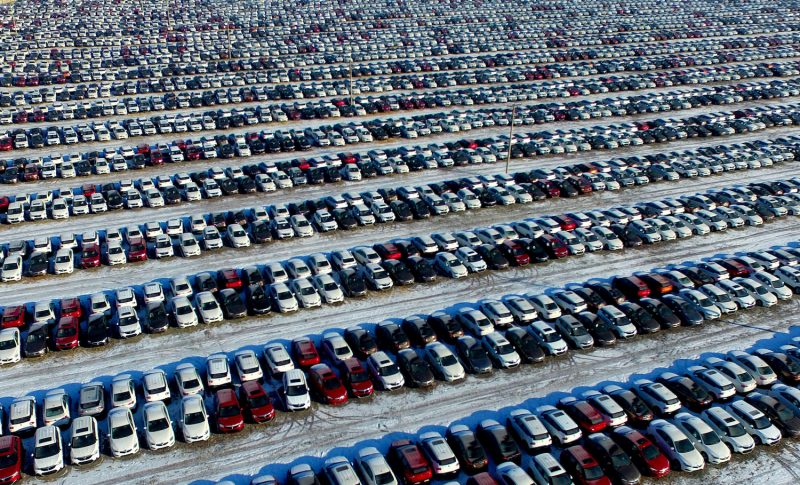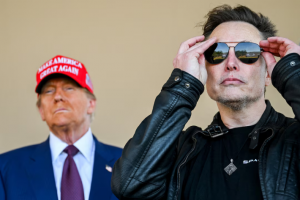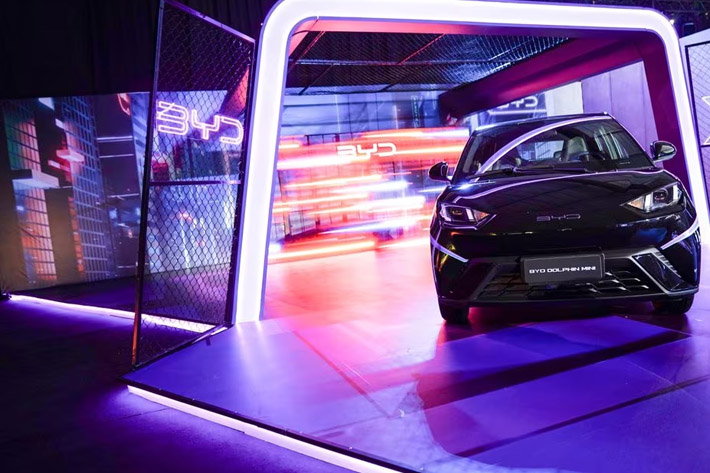China’s commerce minister Wang Wentao has vowed to negotiate with officials from the European Union “until the last minute” to prevent steep tariffs being imposed on the country’s cheap electric vehicles.
Wang is Europe this week, meeting with top officials from Italy and Germany, and is set to hold discussions on the planned tariffs with the European Commission’s trade commissioner Valdis Dombrovskis on Thursday.
Speaking at a China-Europe Electric Vehicles event on Wednesday, Wang raised questions about the “legitimacy, compliance and fairness” of the Commission’s probe into Chinese subsidies for EV-makers.
Also on AF: Musk ‘Eroding Tesla EV Sales’, But do Bigger Things Lie Ahead?
The probe lay the basis for the Commission’s decision to impose tariffs of up to 35.3% on China-made EVs, with officials accusing Chinese automakers of gaining an unfair advantage due to subsidies.
State backing has given steep advantages to Chinese EV-makers, allowing them to sell cars in foreign markets at steep discounts that cause “injury” to local rivals and distort overall markets, EU officials have said.
Chinese automakers, meanwhile, say that the Commission’s probe has been an excuse to “spy on China’s new energy vehicle technology” and supply chains.
Wang reiterated those accusations in a meeting on Monday with Italy’s deputy prime minister Antonio Tajani. The Commission showed “no political will” to solve the tariff dispute and “hastily, swiftly and completely” dismissed various “solutions” China suggested, Wang told Tajani, according to an official statement.
Italy has, nonetheless, backed the Commission’s proposed tariffs to “protect the competitiveness” of its companies.
“We want to work on a trade plan based on equality, we demand equal access for our products in their markets. Our companies must compete on equal terms,” Tajani told Reuters.
Italy has also been seeking to woo Chinese carmakers including Dongfeng and Chery Auto to open factories in order to raise vehicle output.
More retaliation threats
At the EV event, meanwhile, Wang said the planned tariffs will “dampen confidence” of Chinese firms to invest in Europe and “hinder cooperation” between the two regions.
“EU companies have thrived in China, driving the development of China’s automotive industry chain, while China has provided an open market and a fair competitive environment for EU companies,” Wang was quoted as saying by Chinese state media.
State media also claimed that European carmakers at the event said “they are not afraid of competition and do not require tariff protection.”
European carmakers such as Stellantis, BMW, Vokswagen and Polestar have openly opposed EV tariffs in the past saying they will not strengthen the competitiveness of European manufacturers.
At the same time, the European market remains crucial for Chinese EV makers facing a demand slowdown and intense local rivalry at home.
In a press briefing on Wednesday a spokesperson for for the Chinese foreign ministry said EU’s “protectionist” tariffs undermine the bloc’s “green transition and global efforts to combat climate change.”
He also reiterated threats of retaliation if the tariffs are implemented.
View this post on Instagram
EU’s electric vehicle sales plunge
The risk of retaliation — effectively triggering a trade war between China and Europe — has been a major concern on both sides.
German carmakers, for instance, have voiced concern about the threat of retaliation from China since the very beginning of the Commission’s probe. The value of passenger car exports from Germany to China last year was more than three times the value of imports from China.
Similarly, Spanish Prime Minister Pedro Sanchez — who earlier supported EU’s tariffs — called for better negotiations this month saying, “we don’t need another trade war.”
Experts have also expressed fears that the tariffs will hit EU’s decarbonisation goals and also jeopardise the bloc’s goal to end the sales of fossil fuel-powered vehicles by 2035.
Those concerns seem to be evidenced by the latest car sales data out of the EU that showed a near 44% decline in sales of fully electric cars in August.
The bloc’s biggest EV markets Germany and France recorded drops of 68.8% and 33.1% respectively.
The region’s three largest auto firms Volkswagen, Stellantis and Renault saw overall car sales drop by 14.8%, 29.5% and 13.9%, respectively.
Meanwhile, sales at US electric vehicle-maker Tesla and China’s SAIC Motor fell 43.2% and 27.5%, respectively.
The fall in EV sales is partly due to an end of region-wide incentives that fuelled sales last year. But sentiment has also been hit by the planned tariffs that potentially add to purchase prices. Tesla, for instance, has already hiked prices of its Model 3 vehicles in Europe.

- Vishakha Saxena, with Reuters
Also read:
No Way Out For Chinese EV-Makers From Steep US, Europe Tariffs
EU Reduces New Tariffs on China-Made Teslas By More Than Half
US, EU Firms’ Profits, Confidence in China Continue to Sink
China EV Firms Scaling Back European Plans Over Subsidy Probe
Chinese Carmakers Call For 25% Retaliatory Tariffs on EU Cars
In U-Turn, Elon Musk Says US Tariffs on Chinese EVs ‘Not Good’
Stellantis CEO Calls China EV Tariffs a ‘Trap’. He May Be Right
China’s BYD Welcome to Open an EV Factory in France: Minister
As EU Eyes Tariffs, European States Chase China EV Factories























